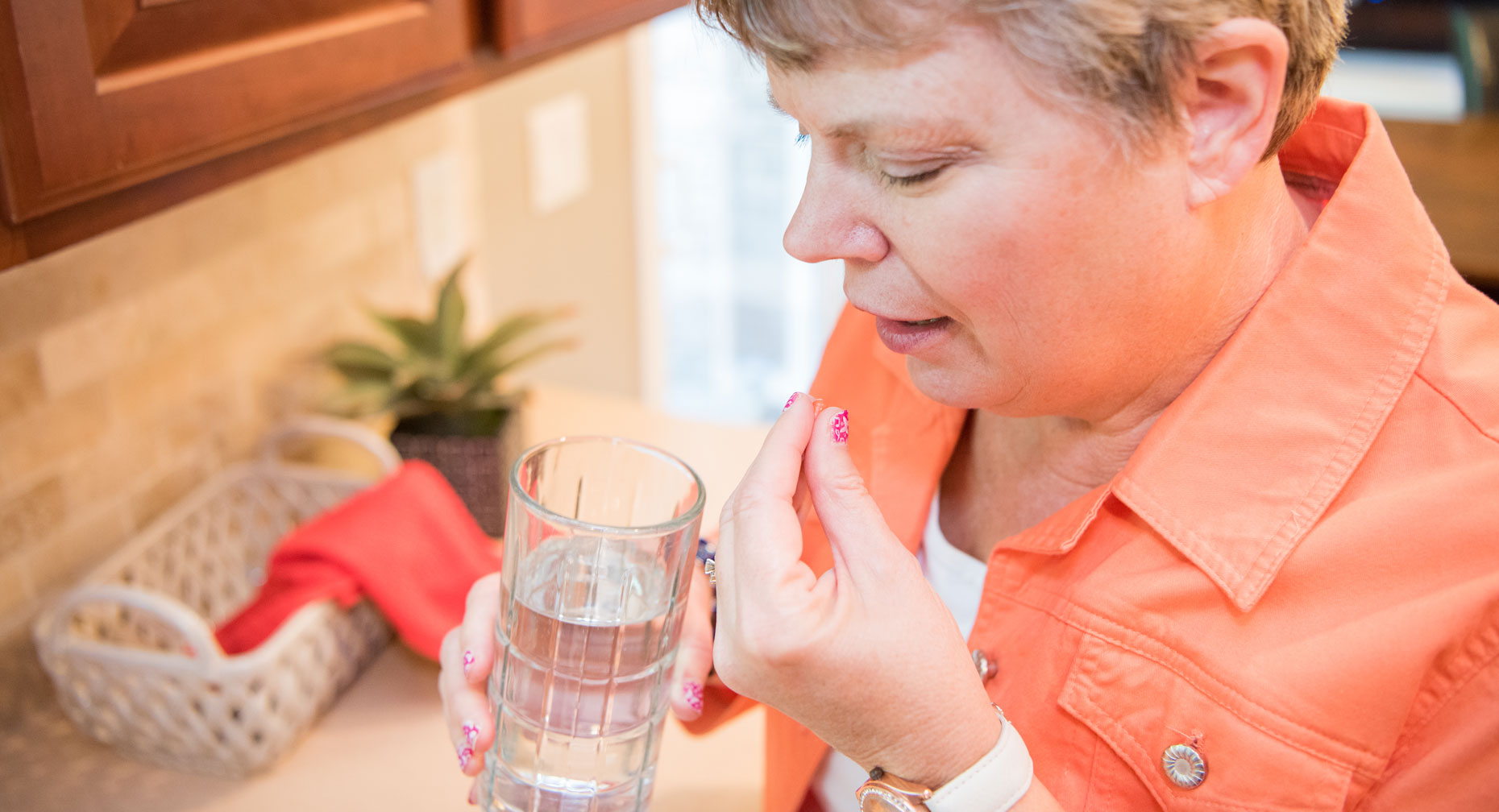How Medicines Can Help Anxiety Disorders

Answer a few questions and we'll provide you with a list of primary care providers that best fit your needs.
An anxiety disorder has the potential to interfere with your ability to function fully in the world. It can have a negative impact on your relationships, and your work or school performance.
Medications can’t cure anxiety disorders, but they often relieve symptoms.
Many people with anxiety disorders benefit from a combination of medicines and other therapies. Medicines that help control anxiety disorder symptoms are grouped into these classes:
Antianxiety (benzodiazepines): These medicines are usually prescribed for short periods of time for symptoms of anxiety, panic attacks or extreme fear or worry. They can become addictive if used long term. Stopping the medicine too quickly can cause withdrawal symptoms.
Beta blockers: These medicines can help prevent physical symptoms of an anxiety disorder, like rapid heartbeat, shaking or sweating.
Selective serotonin reuptake inhibitors (SSRIs): SSRIs can increase the level of serotonin in the brain. Serotonin is a neurotransmitter that elevates mood and helps brain cells communicate with each other.
Tricyclic antidepressants: Antidepressants are used for either depression or anxiety. They help balance out important chemicals in your brain, similar to SSRIs. Sometimes, however, they cause more side effects than SSRIs. They may cause dizziness, drowsiness, dry mouth, constipation or weight gain. To minimize these, your doctor may start you on a low dose that gradually increases. Medical providers generally do not prescribe antidepressants for children, teens and young adults, who may be more likely to have suicidal thoughts.
Monoamine oxidase inhibitor (MAOI) antidepressants: This group of antidepressants also helps balance out brain chemicals to improve mood and lessen anxiety. If you take MAOIs, you must avoid certain foods and drinks (like Parmesan or cheddar cheese and red wine) that contain an amino acid called tyramine. Taking an MAOI and eating these foods can cause blood pressure levels to spike dangerously. You must also take precautions to avoid interactions with other medicines.
Ketamine: Clinical trials have shown that ketamine can lift mood in hours, or even minutes, much faster than other medicines that take weeks to be effective. Positive effects can last a week or longer. On the negative side, it can be addicting. Doctors generally reserve ketamine for patients who have not been helped with other medications or therapies.
Medications can’t cure anxiety disorders, but they often relieve symptoms.
Talking Points With Your Doctor

It’s important to discuss the potential risks and benefits of these medicines with your health care provider. Talk about how long it takes a medicine to start working and what side effects you might expect. Your doctor can guide you toward a choice that is likely to provide the greatest amount of improvement in how you feel and function in your life.
Once you start a medicine, let your provider know if you are having side effects or if the medicine doesn’t seem to improve your anxiety over several weeks. Don’t stop taking the medicine without your doctor’s approval, since an abrupt change can be harmful to you. If there are concerns, your provider will help make adjustments in the type and dosage of medication you take.
For many people, combining medication with talk therapy or other therapies is the best way to manage an anxiety disorder.
Answer a few questions and we'll provide you with a list of primary care providers that best fit your needs.
Source: National Institute of Mental Health; Anxiety and Depression Association of America; WomensHealth.gov



.tmb-card-head.webp?sfvrsn=680c0961_9)
